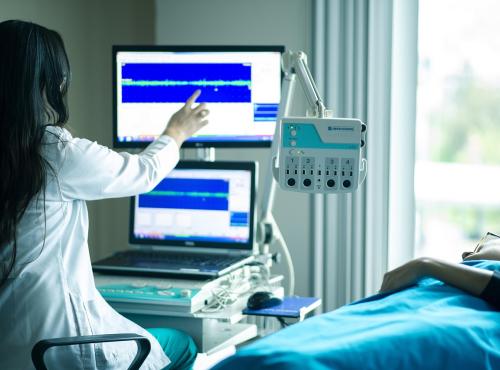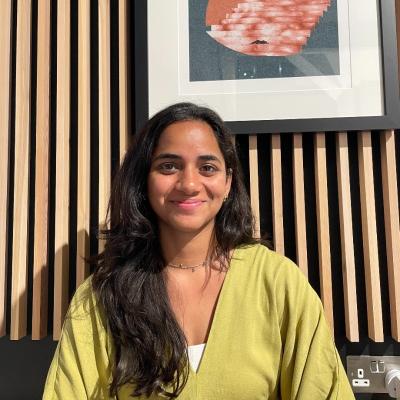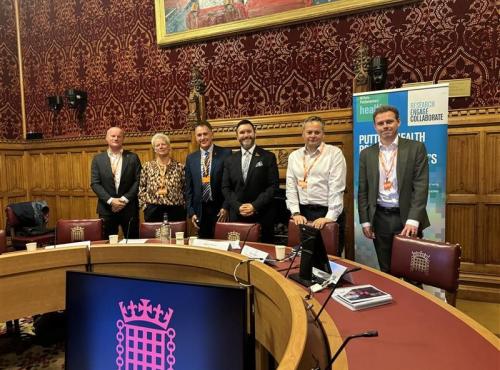Improving Cancer Survival: Time to take down the barriers stopping Community Pharmacy
Ade Williams, superintendent at Bedminster Pharmacy in Bristol, gives his thoughts on the role of community pharmacy in tackling the backlog in the NHS.
As a community pharmacist, my most treasured privileges are the innumerable life interactions with our community. We do life together – riding the emotions, with me always seeking to offer comfort and care.
Sadly, there is a moment that gets played out too many times, each one etched in my heart. A familiar face walks in; I notice something in their eyes, their demeanour, a slumped shoulder. I walk over, abandoning whatever I was doing. We will sit in the consultation room. Often, with the most dignified delivery, I will get the news. That one medical diagnosis – the dreaded C word– yes, Cancer.
Last year, as the coronavirus pandemic took hold, like many others, I feared the impact of the necessary suspension of usual referral pathways coupled with lower uptake or availability of routine screening appointments.
The scale of the crisis now faced and recommendations for restoring services and catching up are summed up across multiple reports including work by Macmillan which found 50,000 potentially missed cancer diagnoses in the first year of the pandemic. The policy paper, “Catch up with cancer – the way forward” identifies 40,000 fewer people starting cancer treatment and 350,000 fewer cancer referrals from March to August. This paper is the work of Chairs of the All-Party Parliamentary Group for Radiotherapy and the All-Party Parliamentary Group on Health, supported by other cancer APPGs and third sector organisations. The recommendations from this report must be enacted both to encourage these missing patients to come forward, and to prioritise them in a backlog expected to reach almost 13 million people in the coming years.
There are many reasons for missed presentations and diagnosis beyond the changes in primary care and referral pathways that were enacted in spring 2020. Many people have delayed presenting with symptoms due to physiological barriers associated with COVID-19. The trauma of images and news of deaths in the places associated with life-preserving care and restoration result in understandable concerns returning to clinical settings. As a result, many people are still holding off planned investigative appointments. This issue may be worsened by the new Omicron variant.
Myself and my pharmacy colleagues have worked hard throughout the pandemic to provide care and recognise potential cancer symptoms. This work is not always acknowledged, and we must continue to work to highlight the increasing role that community pharmacy plays, as well as how this could be expanded.
When General Practice moved to new ways of working, the bulk of face-to-face consultations in the country fell on the shoulders of community pharmacy. The public and the health service for the first time saw the full depth of expertise and innovation in community pharmacy. With these newly distributed primary care roles, the gateway of the NHS may have buckled but did not break. Community pharmacy delivered face-to-face care, COVID-19 vaccinations, minor injury services and helped to diagnose serious conditions such as cancer throughout the pandemic.
Data from a Pharmaceutical Services Negotiating Committee (PSNC) audit provides a measure of the reliance that the public has had on pharmacies through the COVID-19 pandemic and the headline figures are truly staggering:
On average, pharmacies undertake 170,000 consultations per day / 1,125,540 consultations per week / more than 58 million per year. Of the weekly figure, just under 130,000 are informal referrals from General Practice and NHS111 received into pharmacy. This data reveals the emerging picture from the rollout of the Community Pharmacy Referral Service and demonstrates the success of the service and the challenges ahead in managing demand.
Figures also show that 38 million people a year visit pharmacy for symptom advice and in 12.4% of consultations regarding concerning symptoms, patients are referred on to another healthcare professional such as their local GP practice.
But the data does more than reveal the pressures on and the benefit of community pharmacy. It also shows where we need policy change to be most effective, address the backlog and promote early diagnosis. We need policy measures to effectively capture the formal and informal referrals, ensure that pharmacy is funded appropriately to manage them and have the tools to provide safe patient care. A National Institute for Health Research funded University of Bristol study in my area recently found a drop in cancer presentations to GPs. Pharmacies have been there to help identify these patients and I advocate allowing community pharmacy to make clinically appropriate two-week cancer referrals. Both to relieve pressure on GPs, and provide a faster pathway to diagnosis, particularly in areas where health inequalities are more persistent.
I certainly know from my own work and discussions with colleagues that undiagnosed cancer patients are presenting in community pharmacy. As an ambassador of Pancreatic Cancer Action, I am ever aware of non-specific cancer symptoms and will use informal, locally agreed referral pathways into General Practice where possible and patient consented.
We also need the integration in data planned between GPs and hospitals to extend to pharmacy. This will allow for more effective communication in diagnostics, treatment and side effect reporting. It will also mean that pharmacists are armed with the tools to make the most appropriate referral decisions.
During the pandemic, cancer never stopped. Early diagnosis is universally accepted as important for best treatment outcomes. Those conversations that used to fill me with much dread have morphed into statistics and ever more frightening cancer headlines. I will continue to work to increase speed, equity and ease of cancer diagnosis alongside providing much needed reassurance to the public.
Sadly, as I comb through policy and research papers, it remains evident that many people still need to understand and discover the importance of community pharmacy in unlocking early cancer diagnosis. This lack of acknowledgment is a sinking weight. Thank you, community pharmacy for always making time to provide evidence-based care, following up referred patients and providing much needed reassurance. We must all now tackle the barriers and build the bridges needed to create the workable, sustainable change required to improve early diagnosis and make the most of the unique strengths of community pharmacy.
References
- APPG for Radiotherapy, Cancer Summit report: https://e8604b0e-5c16-4637-907f-3091e4443249.filesusr.com/ugd/b68571_a18ace5b95fa4c3fa3027456b5928faf.pdf
- The Forgotten 'C'? The impact of COVID-19 on cancer care (macmillan.org.uk)
- PSNC Pharmacy advice audit 2021
- 2021: rapci-cancer-findings | Centre for Academic Primary Care | University of Bristol




